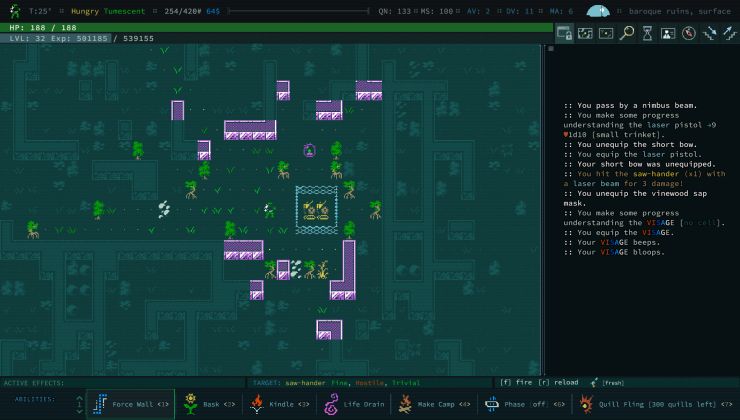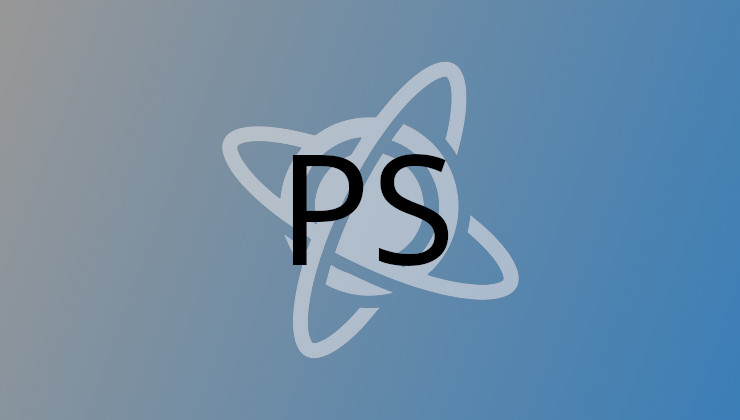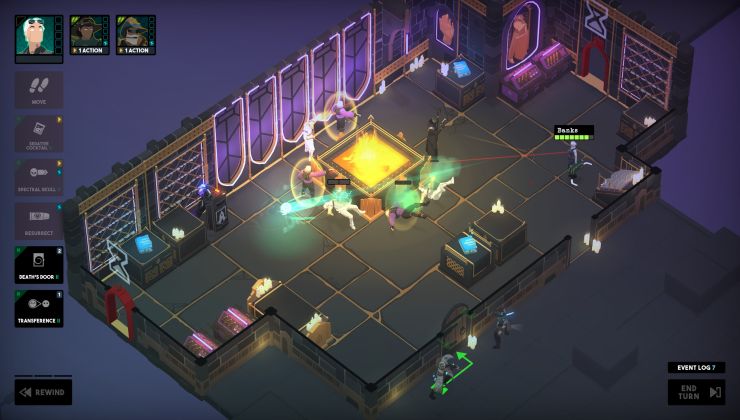Doing the rounds right now is a post from Valve's Steam support (thanks Ars), when a user asked about what would happen to their Steam account when they died and it's not great news for anyone hoping to pass on your Steam account.
This comes from a post on Resetera, where the user asked if a Steam account could be transferred via a will. The Steam support staff member replied to note very clearly Steam accounts are plain and simply "non-transferable".
It's not exactly something new, or surprising, given that Steam's Subscriber Agreement clearly notes "You may not reveal, share or otherwise allow others to use your password or Account except as otherwise specifically authorized by Valve.".
Still, nothing actually technically stops you just writing down your details for someone and leaving it in a safe space, it's not like Valve actually go and confirm your identity. You also have the newer Family Sharing system, so someone could quickly go in and share it to your personal account and get most of the games.
It's also another reminder that on Steam, you don't own any games on it at all. Once again, as per the Subscriber Agreement, "Content and Services are licensed, not sold" and your "license confers no title or ownership in the Content and Services".
This will be the same across nearly all web stores that offer digital products you "buy", they're not yours. Epic Games Store is exactly the same as per their EULA which notes "All rights granted to you under this Agreement are granted by express license only and not by sale". Ubisoft are exactly the same in their terms as well noting "we grant you a non-exclusive, non-transferable, non-sublicensed, non-commercial and personal license". Think GOG are any better? They're not, as per GOG's agreement "Your GOG account and GOG content are personal to you and cannot be shared with, sold, gifted or transferred to anyone else." and they make it clear multiple times you get a license again, not ownership of anything sold.
If you go through most other places, they all use similar language and we're not talking just game stores here but anywhere you digitally purchase movies, TV series and so on. You get the idea. You might be buying the item, but you have no ownernship at all.
Really, the only time this will change is when physical media properly dies off and people cause enough of a fuss that governments and legal bodies around the world put in new laws around digital ownership, which is not likely for a long time.
So, you probably should go and clear that backlog of games you've built up.
Realistically of course you had the disc and you could do whatever you wanted to do with it.
It's kinda the same how GOG operates. You only buy a license. But as the installer is not checking your account or anything, you can do what you want with the games once you saved them somewhere, which you should.
lgogdownloader helps btw.: https://github.com/Sude-/lgogdownloader
For example in License of Windows 10 exist text told, the software is not sold, but licensed.
And so is Linux.
How Valve will be inform when I will die?
Last edited by Geppeto35 on 29 May 2024 at 10:27 am UTC
The difference is in the license that Linux has. It's Copyleft, so you can get the full source code and do whatever you want with it. If you choose to distribute any changes at all, then you are required to also distribute the source code of those changes. This means you could, legally, 'own' your very own copy of it and do whatever you wish with said copy.For example in License of Windows 10 exist text told, the software is not sold, but licensed.
And so is Linux.
I still remember the days of no EULAs, where you bought a copy of a game, and that copy was yours to do with as you pleased, like taking it out of the floppy disk and watching it soar when it pissed you off...
The difference is in the license that Linux has.For example in License of Windows 10 exist text told, the software is not sold, but licensed.
And so is Linux.
It's a licence allowing some stuff and disallowing other stuff. Yes, it's more permissive, but Linux/s uses the very same mechanism Microsoft and Valve and the game publishers are using. If people think this mechanism is wrong (See Lachu above), don't forget to blame Linux/s as well. Giving somebody a licence is nothing to complain about, but the usual way to hand over some rights to a software.
Last edited by Eike on 29 May 2024 at 6:18 pm UTC
2 years after you stop using it - so long as you keep logging in, you should be good.I wonder if Valve will setup a expected death of account owner timer. So once you turn 80yo they consider you dead and invalidate your entire library, lol. That would be dystopian but I suspect in 40years time we will all have MUCH more pressing issues to deal with other then computer stuff.GDPR has already been pushing tech companies to nuke accounts after 2 years so it actually could very well happen.
2 years after you stop using it - so long as you keep logging in, you should be good.I wonder if Valve will setup a expected death of account owner timer. So once you turn 80yo they consider you dead and invalidate your entire library, lol. That would be dystopian but I suspect in 40years time we will all have MUCH more pressing issues to deal with other then computer stuff.GDPR has already been pushing tech companies to nuke accounts after 2 years so it actually could very well happen.
... and only "if the data is not needed anymore", which is obviously not true if it's tied to stuff you bought.
Right. One other thing in Linux's license defense. It isn't ever-evolving and is a proper license.The difference is in the license that Linux has.For example in License of Windows 10 exist text told, the software is not sold, but licensed.
And so is Linux.
It's a licence allowing some stuff and disallowing other stuff. Yes, it's more permissive, but Linux/s uses the very same mechanism Microsoft and Valve and the game publishers are using. If people think this mechanism is wrong (See Lachu above), don't forget to blame Linux/s as well. Giving somebody a licence is nothing to complain about, but the usual way to hand over some rights to a software.
What do I mean by this? 'Your privacy agreement has been updated, agree to it to continue using the software.' Or the EULA updates that come after the purchase of the license. How is that even legal? If you consider a license agreement as a contract between you and the software company on how you can use their software (or what they don't want to allow) is updated all the time, they're basically like the Empire... Lando shouldn't have opened the package, apparently.
Right. One other thing in Linux's license defense. It isn't ever-evolving and is a proper license.
What do I mean by this? 'Your privacy agreement has been updated, agree to it to continue using the software.' Or the EULA updates that come after the purchase of the license. How is that even legal? If you consider a license agreement as a contract between you and the software company on how you can use their software (or what they don't want to allow) is updated all the time, they're basically like the Empire... Lando shouldn't have opened the package, apparently.
I don't think it is (here in Europe at the very least). Such things are a matter of being of finding someone to defend it. And of course, it's hard against a pile of money on the other side.
But, on the positive side, "shrink-wrap" licences have been fought and declared illegal (non-binding) here.
Last edited by Eike on 30 May 2024 at 6:58 pm UTC
+ Click to view long quoteRight. One other thing in Linux's license defense. It isn't ever-evolving and is a proper license.
What do I mean by this? 'Your privacy agreement has been updated, agree to it to continue using the software.' Or the EULA updates that come after the purchase of the license. How is that even legal? If you consider a license agreement as a contract between you and the software company on how you can use their software (or what they don't want to allow) is updated all the time, they're basically like the Empire... Lando shouldn't have opened the package, apparently.
I don't think it is (here in Europe at the very least). Such things are a matter of being of finding someone to defend it. And of course, it's hard against a pile of money on the other side.
But, on the positive side, "shrink-wrap" licences have been fought and declared illegal (non-binding) here.
Yeah, I mean you don't get to read the EULA until you install the software, especially since physical boxes with a printed copy it under the shrink-wrap is no longer a thing in most cases.
Edit: Hell, it's been ages since you even see a printed manual in a physical release, let alone the EULA packaged with something. Nope, you just get it when you go to install it, and by then, money has already parted ways.
Last edited by slaapliedje on 31 May 2024 at 3:20 pm UTC
Same goes for registered domains, email accounts, etc. It's ridiculous to think you can't pass on ownership. Laughable.
If there was some kind of legal battle, executor of the estate might be a utility to bring to the argument.
I will just leave my ID and code to my son, as he uses it yet when I'm not using it... et voilà!They'll probably find it suspicious 200 years from now when my great, great grandchildren are logging in to my account trying to finish my Steam backlog.
How Valve will be inform when I will die?
For example in License of Windows 10 exist text told, the software is not sold, but licensed.
And so is Linux.
If you use Linux, it is your operating system. License told you can do nearly everything (except put the software in weapon, etc. - US laws). You can even sold this software and MS was trying put people to jail, cause they trying to sold their own Windows licenses. At least, European commission told you can sold Windows licenses, if you bought it.
For example in License of Windows 10 exist text told, the software is not sold, but licensed.
And so is Linux.
If you use Linux, it is your operating system.
No. It's licensed. Of course you get way more rights than for Windows, but you're intentionally restricted, not due to law, but due to the makers intentions. (Which are totally ok for me.) I'm just pointing out that the mechanism is the same as with Windows: software licencing.
Last edited by Eike on 3 June 2024 at 7:16 pm UTC










See more from me